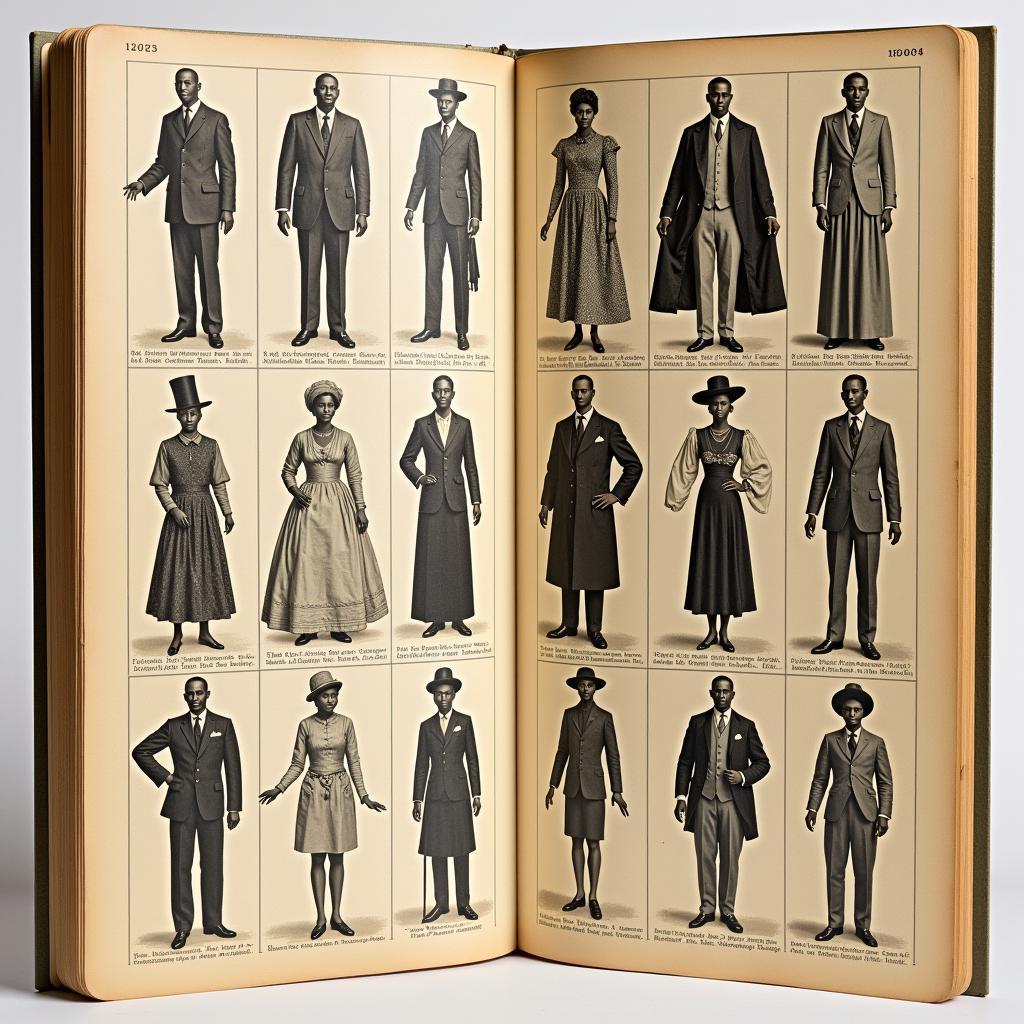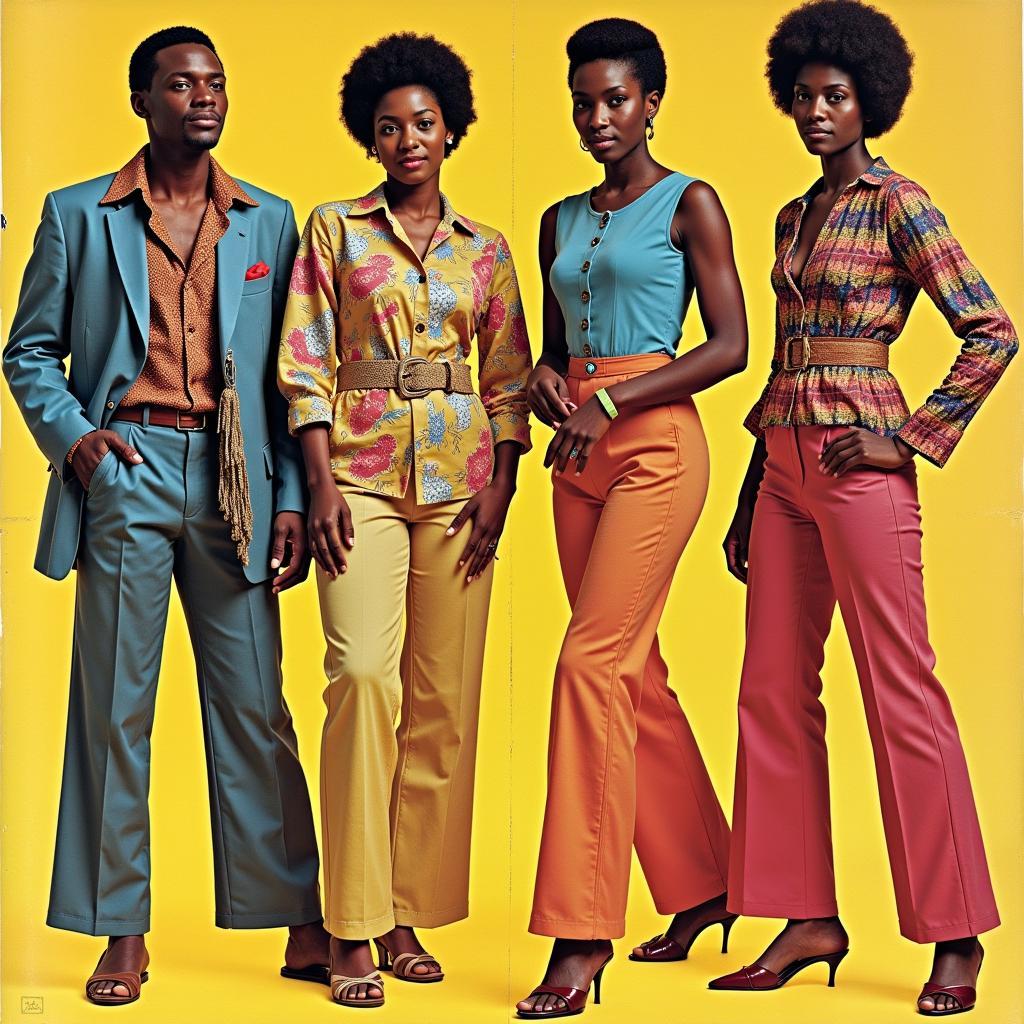Exploring African American Clothing Catalogs: A Journey Through Style and Culture
African American Clothing Catalogs offer a fascinating glimpse into the evolution of style, self-expression, and cultural identity within the African American community. These catalogs, spanning decades, showcase not only fashion trends but also the entrepreneurial spirit and the changing social landscape. They provide a valuable resource for researchers, historians, and anyone interested in the rich tapestry of African American culture.
A Historical Perspective on African American Clothing Catalogs
Early African American clothing catalogs emerged as a response to the lack of representation and often discriminatory practices within mainstream fashion. They provided a platform for Black designers, models, and entrepreneurs to showcase their talent and cater to the specific needs and desires of the African American community. These catalogs became more than just a way to purchase clothing; they served as a powerful tool for empowerment and self-affirmation. african american fashion catalogs
The Rise of Black-Owned Businesses and Catalogs
The late 19th and early 20th centuries saw a surge in Black-owned businesses, including clothing companies. These businesses recognized the underserved market and sought to provide stylish and culturally relevant clothing options. This era marked a significant step towards economic independence and self-sufficiency within the African American community.
 Early 20th Century African American Clothing Catalogs
Early 20th Century African American Clothing Catalogs
Reflecting Changing Social and Political Landscapes
African American clothing catalogs also mirrored the evolving social and political climate. From the vibrant patterns and styles of the Harlem Renaissance to the more Afrocentric fashions of the Civil Rights era, these catalogs documented the shifting expressions of identity and cultural pride. They became a visual record of the community’s journey towards social justice and equality.
From Practicality to High Fashion: A Look at Evolving Styles
The styles showcased in African American clothing catalogs evolved significantly over time, reflecting broader fashion trends as well as unique cultural influences. Early catalogs often emphasized practicality and affordability, offering durable workwear and everyday essentials. As Black communities gained economic power, the catalogs began to feature more sophisticated designs, reflecting a growing desire for self-expression through fashion. african american fashion catalogs
The Influence of Music and Popular Culture
Music and popular culture played a significant role in shaping the fashion trends featured in these catalogs. From the jazz-inspired flapper dresses of the 1920s to the bold and colorful styles of the 1970s, African American clothing catalogs reflected the dynamic interplay between fashion and cultural expression.
 African American Fashion in the 1970s as Seen in Catalogs
African American Fashion in the 1970s as Seen in Catalogs
Embracing Cultural Identity and Heritage
In more recent decades, African American clothing catalogs have increasingly embraced cultural heritage and traditions. Designs incorporating African prints, textiles, and silhouettes have become increasingly popular, reflecting a renewed emphasis on celebrating African roots and identity.
Where to Find and Explore African American Fashion Catalogs
Today, these catalogs are valuable historical artifacts and research resources. They can be found in libraries, archives, and online databases, offering a unique window into the past. Studying these catalogs allows us to appreciate the creativity, resilience, and entrepreneurial spirit of the African American community throughout history. african american fashion catalogs
Digitizing History for Future Generations
Many institutions are now digitizing these catalogs, making them more accessible to researchers and the public. This effort helps to preserve and share these important cultural documents for future generations.
Conclusion: African American Clothing Catalogs – A Legacy of Style and Substance
African American clothing catalogs offer more than just a glimpse into fashion trends; they provide a powerful lens through which to explore the history, culture, and entrepreneurial spirit of the African American community. From their humble beginnings to their evolving styles, these catalogs reflect a journey of self-expression, resilience, and pride. They remain a vital resource for understanding the rich and complex narrative of African American life and style.
FAQs
- What information can be found in African American clothing catalogs besides clothing? Often, these catalogs included beauty products, home goods, and even advice columns.
- Were there specific challenges faced by Black-owned clothing companies in the past? Yes, they faced discrimination, limited access to capital, and segregation.
- How have these catalogs influenced contemporary fashion? They have paved the way for Black designers and promoted the inclusion of diverse styles.
- Where can I find digitized versions of these catalogs? Many libraries and museums have online archives dedicated to historical materials.
- Are there any modern equivalents to these catalogs? Yes, many Black-owned online businesses and boutiques cater to a diverse clientele.
- What role did these catalogs play in the Civil Rights Movement? They provided a platform for economic empowerment and cultural affirmation.
- How did these catalogs reflect the changing roles of women in society? They showcased evolving fashion trends and career aspirations for Black women.
Need More Help?
For further assistance or inquiries, please contact us:
Phone: +255768904061
Email: kaka.mag@gmail.com
Address: Mbarali DC Mawindi, Kangaga, Tanzania
Our customer service team is available 24/7.


